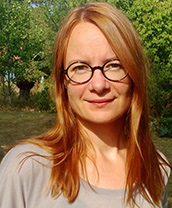
Eeva Primmer
Can we compensate the deterioration of nature values by restoring habitats elsewhere? Is it possible to bank nature? Does nature grow interest? What is a habitat bank?
These difficult questions have been addressed by the Habitat Bank during the last few months. Based on the Biodiversity NOW!, an awardee of the Helsinki Challenge Science Based Competition and Idea Accelerator, the Habitat Bank of Finland is piloting an ecological compensation in practice, in collaboration with business, administration, NGOs and researchers.
The dialogue with the stakeholders has revealed expectations, concerns and challenges, which remain topical also during the holiday season, as the planned investments in nature will exceed the short-term seasonal returns.
The Habitat Bank is a solution that aims to halt biodiversity loss with an ecological compensation. The idea is that economic actors deteriorating nature will invest in restoration or protection. For example, a construction, energy or mining company compensates for the ecological loss it has caused. The compensation will be channeled to a landowner or a group of landowners who will produce the ecological improvement.
The Habitat Bank will function as an intermediary between actors demanding and supplying compensations. The mechanism will be developed with an in-depth understanding of its ecological and economic impacts as well as the institutional conditions.
The stakeholder dialogue has shown that the ecological compensation is expected to contribute to halting the loss of biodiversity. Stakeholders consider the mechanism to complement the existing policy instrument mix. For some, compensation represents the “only feasible mechanism in this economic situation”, or “the last resort”, as other instruments have not stopped biodiversity degradation.
The compensation mechanism is a positive and constructive way of having the different economic actors collaboratively seek solutions to a common goal. Because industry, building and infrastructure will continue to develop, compensation a cost-efficient nature conservation mechanism, allocating the costs of biodiversity deterioration back to the value chain that causes it. At best, the mechanism will lead to avoiding losses of nature values.
How can deterioration and improvement of nature values be compared? What will compensate for the damage caused by construction, for example? What management activities will effectively restore habitats and increase nature values? The Habitat Bank of Finland seeks to answer these questions.
Stakeholders agree that measuring deterioration and improvement is paramount. Yet, they identify also normative principles. For example, “nature values that cannot be compensated should not be deteriorated”, and “compensations must exceed losses”.
These views relate to the principle of no net loss, which highlights full offsetting, including an additional marginal that allows for unforeseeable changes and failures in restoration.
Some fear that compensations represent a license to trash and allow escaping conservation responsibility. There are also suspicions that the Habitat Bank might develop a market for trading activities that would take place also without the mechanism.
Clearly the challenges of the Habitat Bank of Finland relate to verifiability and long-term durability. The companies buying the compensations want to gain a permanent conservation improvement for their investment and positive ecological impacts are a precondition for developing a new mechanism. Also landowners offering the compensations need predictability.
The stakeholder dialogue has confirmed that Finnish actors place high importance on nature conservation. Indeed, these actors value biodiversity so much that they will not just reap the short term returns. We are in a hurry to take action but in return the investments in nature will grow interest for the future generations.
PhD Eeva Primmer is the Head of Environmental Governance Unit in SYKE. With a background in forestry, she is Docent in Environmental Policy. She actively searches for sustainable solutions and enjoys a good conversation, both at work and at leisure.
Eeva Primmer, Tel: + 358 295 251 521, firstname.surname@ymparisto.fi
Please be advised that the opinions of blog contributors do not reflect the views and opinions of the Finnish Environment Institute.